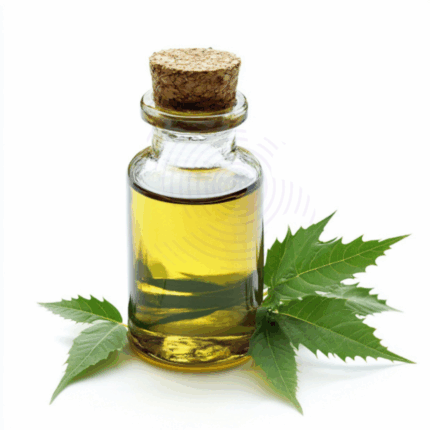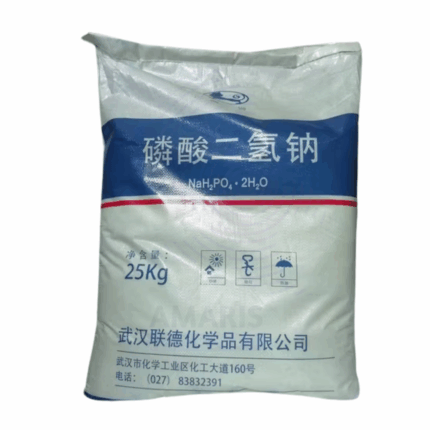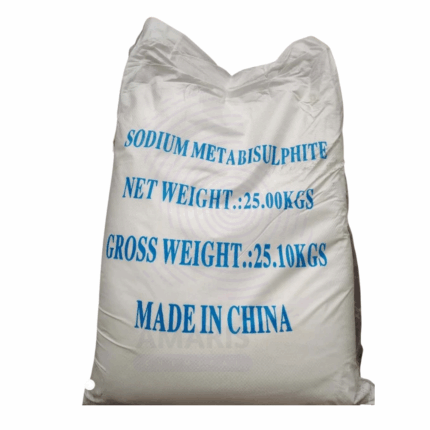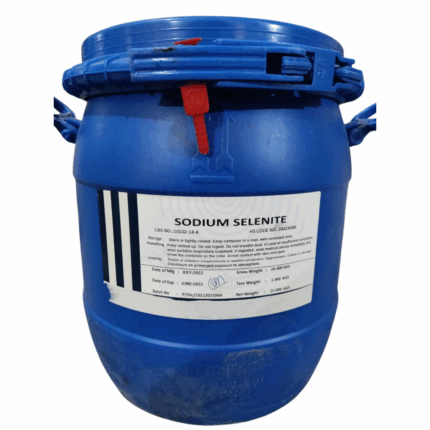
Agricultural chemicals are substances used to enhance crop production and protect plants from pests, diseases, and weeds. They include pesticides (insecticides, herbicides, fungicides), fertilizers (NPK, micronutrients), and soil conditioners. These chemicals boost yields, improve soil fertility, and ensure food security, but require careful management to minimize environmental and health risks.
Acid Oil Soya
Acid Oil Soya is a byproduct derived from the refining of soybean oil. It is a dark-colored, free fatty acid-rich liquid containing mainly oleic and linoleic acids. Acid Oil Soya is commonly used in industrial applications such as soap making, animal feed, and as a raw material in the production of biodiesel, lubricants, and other chemicals.
Ammonium Cupric Chloride
Ammonium Cupric Chloride is a blue-green crystalline inorganic compound composed of copper, ammonium, and chloride ions. It is widely used as a source of copper in agricultural fungicides and bactericides, as well as in electroplating, chemical synthesis, and textile dyeing. Its antimicrobial properties make it valuable for controlling fungal and bacterial infections in plants. Additionally, it serves as a precursor in various industrial and laboratory applications.
Neem oil
Neem oil is a natural vegetable oil pressed from the fruits and seeds of the neem tree (Azadirachta indica). It is characterized by its strong, pungent odor and dark brown color. Rich in active compounds like azadirachtin, nimbin, and fatty acids, neem oil is renowned for its insecticidal, antifungal, and antibacterial properties. It is widely used in organic farming, cosmetics, and traditional medicine for its therapeutic and protective benefits.
Sodium Dihydrogen Phosphate
Sodium Dihydrogen Phosphate (NaH₂PO₄) is a white crystalline powder or granule, highly soluble in water. It is widely used as a buffering agent, emulsifier, and pH adjuster in various industrial, food, pharmaceutical, and laboratory applications. It acts as a source of phosphate ions and helps maintain the stability and consistency of formulations. This chemical is commonly utilized in food processing, water treatment, detergents, and as a reagent in chemical synthesis.
Sodium Nitrate (25kg)
Sodium Nitrate is an inorganic white crystalline solid with the chemical formula NaNO₃. This 25kg packaged industrial-grade product serves as a powerful oxidizing agent and nitrogen source, widely used in fertilizers, pyrotechnics, food preservation, and chemical manufacturing. Its high solubility and stability make it ideal for controlled oxidation processes and nitrate salt production.
Sodium Selenite
Sodium Selenite is an inorganic selenium compound with the formula Na₂SeO₃. In its commercial 45% concentration, it is typically supplied as a colorless to slightly yellow aqueous solution or as a crystalline solid with 45% selenium content. It is primarily used as a micronutrient additive in animal nutrition, a reagent in the pharmaceutical and glass industries, and in various research applications. Highly bioavailable, it serves as a key selenium source where controlled selenium supplementation is critical. This 25kg product offers precise dosing, stability, and ease of handling in industrial and agricultural settings.
Sulphadimidine BP Vet
Sulphadimidine BP Vet (also known as Sulfadimidine or Sulfamethazine) is a synthetic sulfonamide antibacterial agent used primarily in veterinary medicine. It is effective against a broad range of Gram-positive and Gram-negative bacteria by inhibiting folic acid synthesis, essential for bacterial growth. This BP-grade product ensures pharmaceutical quality suitable for treating infections in livestock and companion animals, promoting animal health and productivity.
Sulphur Powder
Sulphur Powder is finely ground elemental sulfur known for its high purity and uniform particle size. It is widely used across industries such as agriculture, chemical manufacturing, pharmaceuticals, and rubber vulcanization. The powdered form offers increased surface area, enhancing reactivity and ease of mixing in formulations. Sulphur Powder is essential in various processes requiring sulfur as a raw material or active component.
Turkey Red Oil (Sulphated Castor Oil)
Turkey Red Oil, also known as Sulphated Castor Oil, is a water-soluble derivative of castor oil produced through a sulfonation process using concentrated sulfuric acid. It results in a highly viscous, amber-colored liquid that acts as an excellent emulsifier, wetting agent, and dispersing agent. Unlike natural castor oil, it disperses easily in water, making it ideal for applications in textiles, cosmetics, agriculture, and industrial formulations. Its biodegradable and non-toxic nature also makes it eco-friendly and suitable for sensitive formulations.
Urea
Urea is a highly water-soluble organic compound widely used as a nitrogen-release fertilizer in agriculture. It serves as a key source of nitrogen for plant growth and development. Apart from agriculture, urea is utilized in various industrial applications such as resin production, animal feed, and chemical manufacturing. Its high nitrogen content and easy handling make it a versatile and essential raw material in multiple sectors.
Verbena Vervain
Verbena, also known as Vervain, is a medicinal and aromatic herb renowned for its therapeutic properties and fragrant aroma. It is commonly used in herbal medicine, perfumery, and flavoring applications. Verbena extracts and essential oils are valued for their calming, anti-inflammatory, and digestive benefits. The herb is harvested and processed to retain its natural active compounds for use across various industries.
Whiting
Whiting is a finely ground, white, chalky substance primarily composed of calcium carbonate (CaCO₃). It is widely used as a pigment, filler, and extender in various industrial and commercial applications. Whiting provides opacity, brightness, and smoothness to products, enhancing their appearance and physical properties. Its natural abundance and versatility make it an economical additive in multiple manufacturing processes.
Xantham Gum
Xanthan Gum is a high-molecular-weight polysaccharide produced by fermentation of glucose or sucrose by the bacterium Xanthomonas campestris. It is widely used as a thickening, stabilizing, and emulsifying agent in various industries due to its excellent viscosity properties, even at low concentrations. Xanthan Gum imparts improved texture, consistency, and shelf life to finished products, making it indispensable in food, pharmaceutical, cosmetic, and industrial formulations.
Zinc Oxide USP
Zinc Oxide USP is an inorganic white powder composed primarily of ZnO. It is widely used as a functional additive in rubber, ceramics, glass, paints, and chemical industries. Known for its excellent chemical stability, UV-absorbing capability, and reactivity with acids and alkalis, this grade is tailored for industrial applications where high purity is not mandatory but consistent quality and performance are essential.
Zinc Sulphate Heptahydrate
Zinc Sulphate Heptahydrate (ZnSO₄·7H₂O) is a white, crystalline, water-soluble compound commonly used as a dietary supplement to treat zinc deficiency. It serves as a key ingredient in fertilizers, animal feeds, and industrial applications like water treatment and dyeing. The heptahydrate form contains seven water molecules, making it highly soluble and effective for various agricultural, medical, and chemical uses.


 Preservatives(food)
Preservatives(food) Flavor Enhancers
Flavor Enhancers Acidulants
Acidulants Sweeteners
Sweeteners Antioxidants
Antioxidants Colorants(food)
Colorants(food) Nutraceutical Ingredients (food)
Nutraceutical Ingredients (food) Nutrient Supplements
Nutrient Supplements Emulsifiers
Emulsifiers
 Collectors
Collectors Dust Suppressants
Dust Suppressants Explosives and Blasting Agents
Explosives and Blasting Agents Flocculants and Coagulants
Flocculants and Coagulants Frothers
Frothers Leaching Agents
Leaching Agents pH Modifiers
pH Modifiers Precious Metal Extraction Agents
Precious Metal Extraction Agents
 Antioxidants(plastic)
Antioxidants(plastic) Colorants (Pigments, Dyes)
Colorants (Pigments, Dyes) Fillers and Reinforcements
Fillers and Reinforcements Flame Retardants
Flame Retardants Monomers
Monomers Plasticizers
Plasticizers Polymerization Initiators
Polymerization Initiators Stabilizers (UV, Heat)
Stabilizers (UV, Heat)
 Antifoaming Agents
Antifoaming Agents Chelating Agents
Chelating Agents Coagulants and Flocculants
Coagulants and Flocculants Corrosion Inhibitors
Corrosion Inhibitors Disinfectants and Biocides
Disinfectants and Biocides Oxidizing Agents
Oxidizing Agents pH Adjusters
pH Adjusters Scale Inhibitors( water)
Scale Inhibitors( water)
 Antioxidants(cosmetic)
Antioxidants(cosmetic) Emollients
Emollients Fragrances and Essential Oils
Fragrances and Essential Oils Humectants
Humectants Preservatives
Preservatives Surfactants(cosmetic)
Surfactants(cosmetic) Thickeners
Thickeners UV Filters
UV Filters
 Fertilizers
Fertilizers Soil Conditioners
Soil Conditioners Plant Growth Regulators
Plant Growth Regulators Animal Feed Additives
Animal Feed Additives Biostimulants
Biostimulants Pesticides (Herbicides, Insecticides, Fungicides)
Pesticides (Herbicides, Insecticides, Fungicides)
 Active Pharmaceutical Ingredients (APIs)
Active Pharmaceutical Ingredients (APIs) Excipients
Excipients Solvents(pharmaceutical)
Solvents(pharmaceutical) Antibiotics
Antibiotics Antiseptics and Disinfectants
Antiseptics and Disinfectants Vaccine Adjuvants
Vaccine Adjuvants Nutraceutical Ingredients (pharmaceutical)
Nutraceutical Ingredients (pharmaceutical) Analgesics & Antipyretics
Analgesics & Antipyretics
 Analytical Reagents
Analytical Reagents Solvents(lab)
Solvents(lab) Chromatography Chemicals
Chromatography Chemicals Spectroscopy Reagents
Spectroscopy Reagents microbiology-and-cell-culture-reagents
microbiology-and-cell-culture-reagents Molecular Biology Reagents
Molecular Biology Reagents Biochemical Reagents
Biochemical Reagents Inorganic and Organic Standards
Inorganic and Organic Standards Laboratory Safety Chemicals
Laboratory Safety Chemicals Specialty Laboratory Chemicals(Special Laboratory Equipment)
Specialty Laboratory Chemicals(Special Laboratory Equipment)
 Demulsifiers
Demulsifiers Hydraulic Fracturing Fluids
Hydraulic Fracturing Fluids Scale Inhibitors(oil)
Scale Inhibitors(oil) Surfactants(oil)
Surfactants(oil) Drilling Fluids
Drilling Fluids
 Dyes and Pigments
Dyes and Pigments Bleaching Agents
Bleaching Agents Softening Agents
Softening Agents Finishing Agents
Finishing Agents Antistatic Agents
Antistatic Agents
 Admixtures
Admixtures Waterproofing Agents
Waterproofing Agents Sealants and Adhesives
Sealants and Adhesives Curing Compounds
Curing Compounds Concrete Repair Chemicals
Concrete Repair Chemicals Anti-Corrosion Coatings
Anti-Corrosion Coatings
 Surfactants(cleaning)
Surfactants(cleaning) Builders
Builders Enzymes
Enzymes Solvents (Cleaning)
Solvents (Cleaning) Fragrances
Fragrances
 Electronic Chemicals
Electronic Chemicals Catalysts
Catalysts Lubricants
Lubricants Photographic Chemicals
Photographic Chemicals Refrigerants
Refrigerants Automotive chemicals
Automotive chemicals Pyrotechnic Chemicals
Pyrotechnic Chemicals
 Biodegradable Surfactants
Biodegradable Surfactants Bio-based Solvents
Bio-based Solvents Renewable Polymers
Renewable Polymers Carbon Capture Chemicals
Carbon Capture Chemicals Wastewater Treatment Chemicals
Wastewater Treatment Chemicals
 Pigments
Pigments Solvents(paint)
Solvents(paint) Specialty Coatings
Specialty Coatings Binders/Resins
Binders/Resins Additives
Additives Driers
Driers Anti-Corrosion Agents
Anti-Corrosion Agents Functional Coatings
Functional Coatings Application-Specific Coatings
Application-Specific Coatings
 Fresh Herbs
Fresh Herbs Ground Spices
Ground Spices Whole Spices
Whole Spices Spice Blends
Spice Blends Dried Herbs
Dried Herbs
 Leavening Agents
Leavening Agents Dough Conditioners
Dough Conditioners Flour Treatments
Flour Treatments Fat Replacers
Fat Replacers Decoratives
Decoratives Preservatives(baking)
Preservatives(baking)
 Plasticizers & Softeners
Plasticizers & Softeners Reinforcing Agents
Reinforcing Agents Adhesion Promoters
Adhesion Promoters Vulcanizing Agents
Vulcanizing Agents Antidegradants
Antidegradants Blowing Agents
Blowing Agents Fillers & Extenders
Fillers & Extenders Accelerators & Retarders
Accelerators & Retarders





































